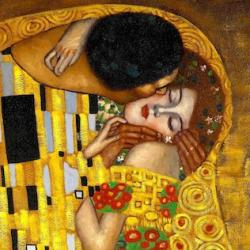According to Barth, when the decree loses its Christological focus, a gap emerges between a fundamental decree regarding predestination and reprobation and the “functional” decree to save in Christ. Christ becomes an instrument for carrying out that more basic decree, but He is not identified with the content of that decree. Eventually, the hidden decree, which hovers behind Christ, becomes the real one, and the real God is not the one revealed in Christ Jesus, but a hidden God who has even now not been revealed. The revelation of God in Christ becomes only a relative truth about God.
Even when Christ was brought forward as the speculum electionis, the question remained of whether there was perhaps some election that was not evident in Him.
As Barth puts it, “Is it the case, in fact, that behind the pastoral . . . truth that God’s election meets us and is revealed to us in Jesus Christ, there stands a higher truth which, for the sake of prudence and charity, must be withdrawn from the practical usage of the church, a truth which cannot be denied or entirely suppressed, but which is so dangerous that it must be covered over and kept out of reach of the curious like a poison? Is it the case that, according to this higher and dangerous truth concealed for practical purposes in the background, while Christ is indeed the medium and instrument of the divine activity at the basis of election, and to that extent He is the revelation of the election by which factually we must hold fast, yet the electing God Himself is not Christ but God the Father, or the triune God, in a decision which precedes the being and will and word of Christ, a hidden God, who as such was made, as it were, the actual resolve and decree to save such and such men and to bring them to blessedness, and then later made, as it were, the formal and technical decree and resolve to call the elect and to bring them to that end by means of His Son, by means of His Word and Spirit? . . . Is it the case that the decision made in Jesus Christ by which we must hold fast is, in fact, only another and a later and subordinate decision, while the first and true decision of election is to be sought . . . in the mystery of the self-existing being of God, and of a decree made in the absolute freedom of this divine being?” (Church Dogmatics, II.2, pp. 63-4).
As Barth emphasizes, the practical and pastoral implications of the detachment of election from Christ are devastating. The purpose of the Reformation treatment of election as a Christological concern was to challenge the abstract, speculative, and mystical effects of the non-Christological election of medieval theology.
If election is separated from Christ, “How . . . can we have attained to any sure knowledge of this relationship? How can we be certain that it is good to be so fully in the hands of God as we are proclaimed to be when we assert that God elects? . . . It is against this uncertainty that Reformation theology sought to protect itself by its thesis that Jesus Christ is the speculum electionis. The reference to the person of the Mediator and the Word and self-revelation of God was intended to liberate reflection on this subject from the inevitable tendency to lose itself in a sphere inaccessible by its very nature to human effort, a sphere which allows only of assertions which cannot sustain us because they are never more than our own assertions. . . . What can sustain us is the declaration which God Himself as Creator and Lord of life and death has made in our favour in Jesus Christ. When we let ourselves be taught by the Word of God and the Spirit of God, then we can be sure of the divine election.” Election is not hidden behind Jesus: “We can and should rejoice in God and in ourselves because we can see God’s electing and our election at the place where God Himself has revealed it, in the Word of God made flesh” (Church Dogmatics, II.2, pp. 64-65).











